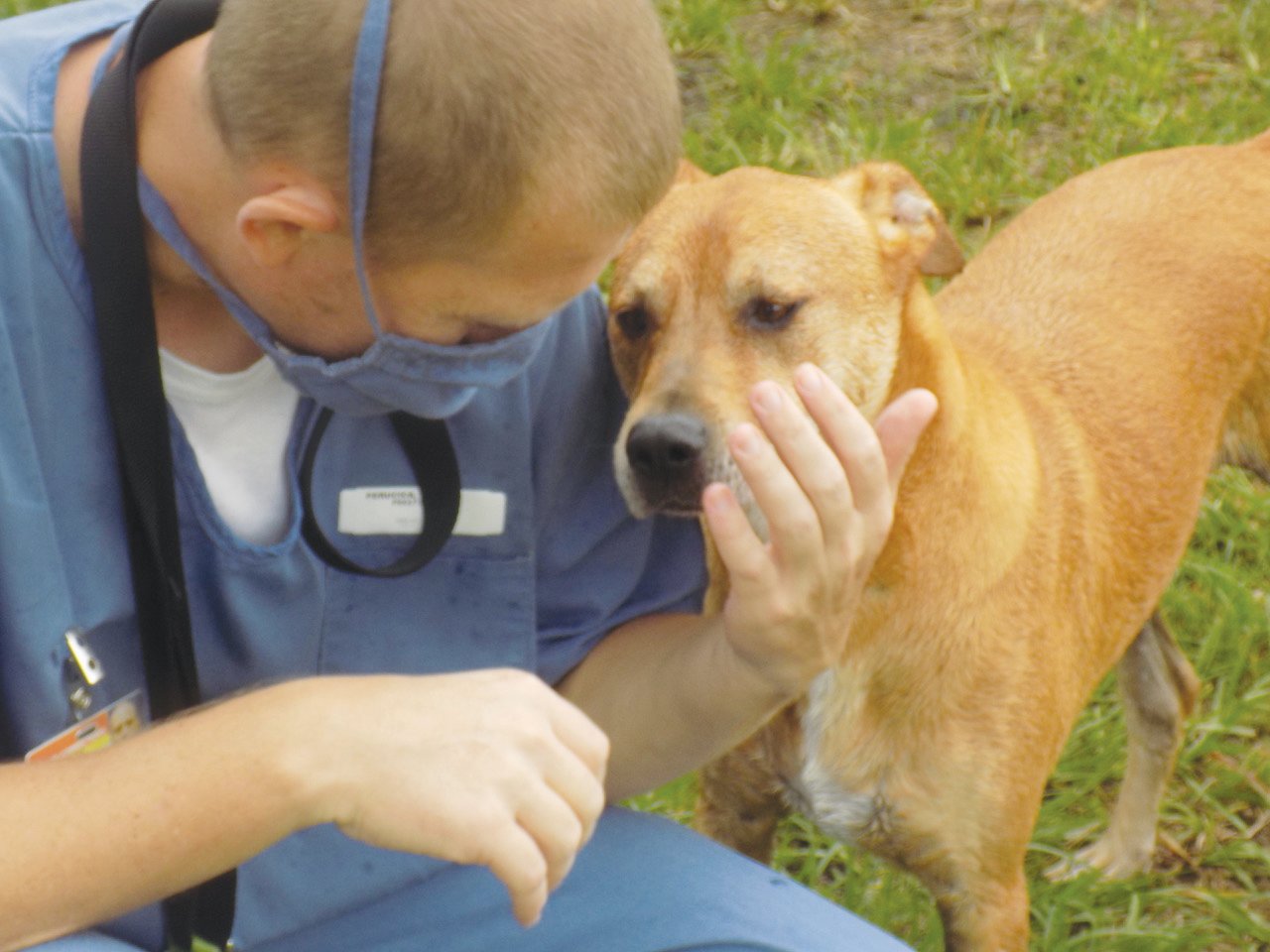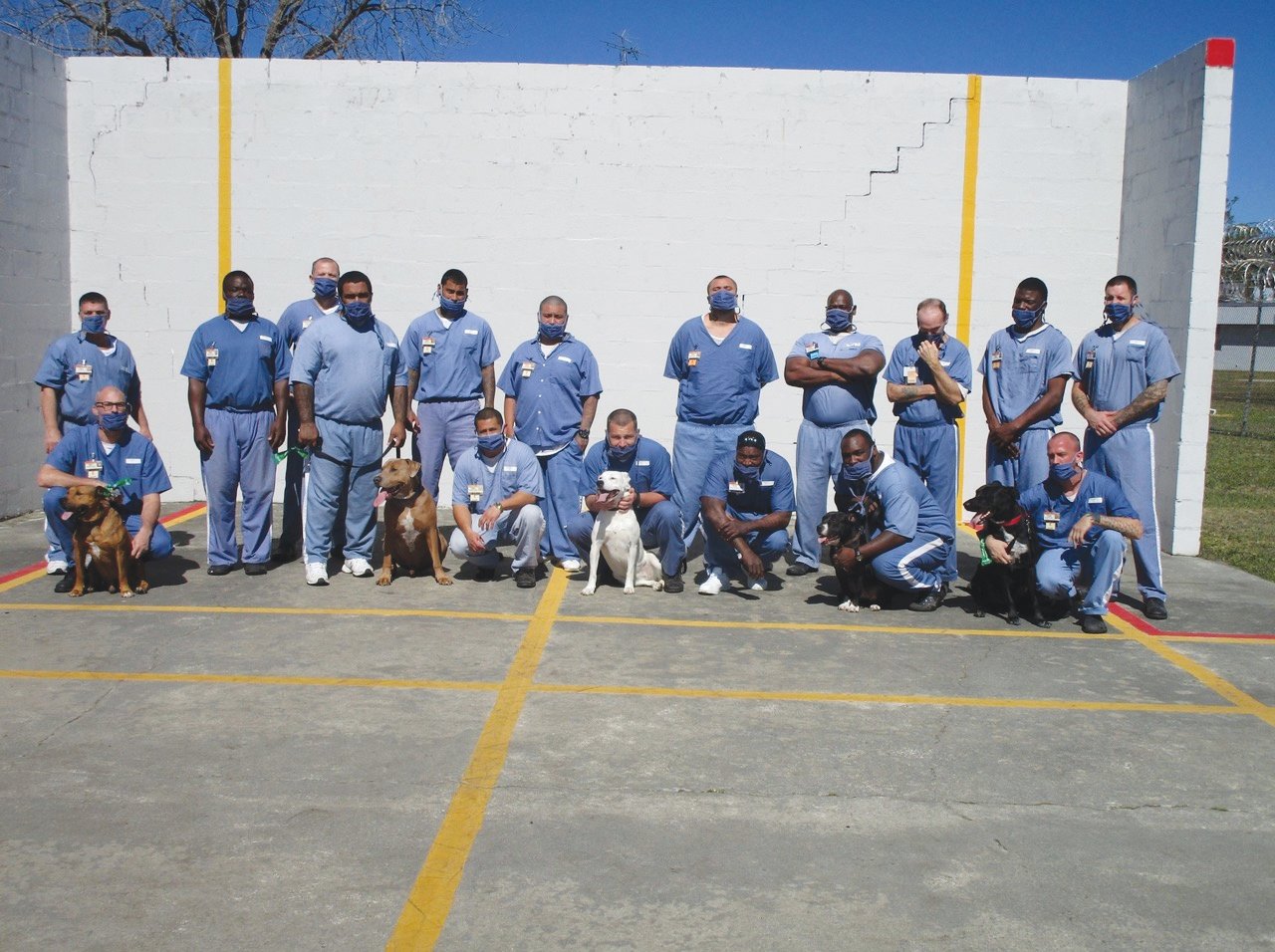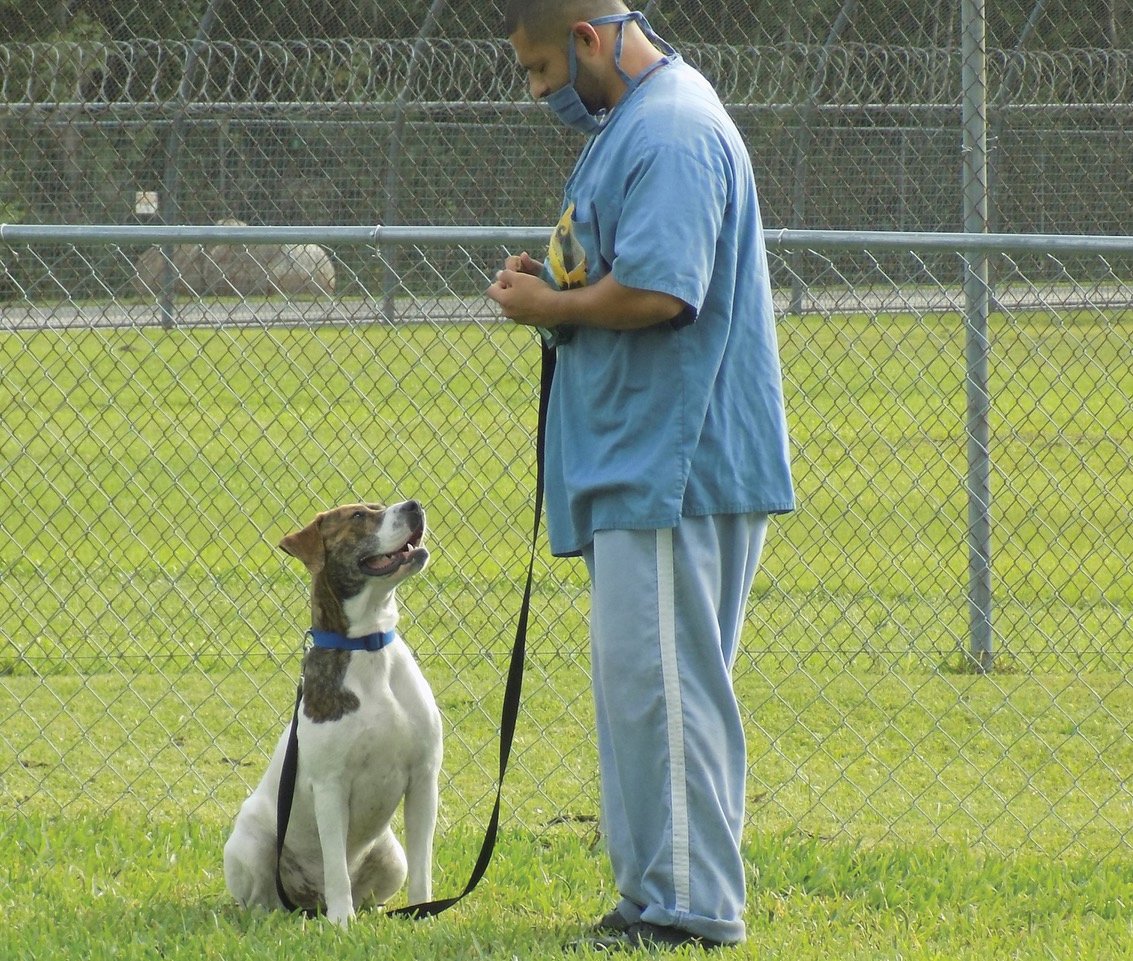Pups at Work
SAFE Animal Shelter uses dogs to affect lives of prisoners
CLAY COUNTY – Dogs are changing the lives of prisoners inside the Lawtey Correctional Institution and it’s happening with the help of the county’s SAFE Animal Shelter.
SAFE’s Jennifer …
This item is available in full to subscribers.
Attention subscribers
To continue reading, you will need to either log in to your subscriber account, or purchase a new subscription.
If you are a current print subscriber, you can set up a free website account and connect your subscription to it by clicking here.
If you are a digital subscriber with an active, online-only subscription then you already have an account here. Just reset your password if you've not yet logged in to your account on this new site.
Otherwise, click here to view your options for subscribing.
Please log in to continueDon't have an ID?Print subscribersIf you're a print subscriber, but do not yet have an online account, click here to create one. Non-subscribersClick here to see your options for subscribing. Single day passYou also have the option of purchasing 24 hours of access, for $1.00. Click here to purchase a single day pass. |
Pups at Work
SAFE Animal Shelter uses dogs to affect lives of prisoners
CLAY COUNTY – Dogs are changing the lives of prisoners inside the Lawtey Correctional Institution and it’s happening with the help of the county’s SAFE Animal Shelter.
SAFE’s Jennifer Knaus has been the lead of the shelter’s Pups at Work program for some time and she’s constantly at work, trying to expand the program to even more prisons in Northeast Florida. The Lawtey Prison was the first prison to join the program and she’s worked with dozens of inmates and dogs to get them certified as American Kennel Club Good Canine Citizens.
The 10-week course gets the dogs those certifications, but what does it do for the inmates helping the dogs? A lot, actually.
“It’s new for me,” Anthony Ledbetter, a Lawtey prisoner said when asked about what it’s like being able to train dogs while in prison. “I’m used to prison being violent and this is different.”
Ledbetter said they teach dogs “guidance,” through simple commands like sit, talk, yes and no. While teaching the dogs, he’s been taught by them that it’s important to understand that life just isn’t simple for everyone. It means a lot for him to be able to have this opportunity, which he said makes a dog’s life better and his own life better.
“It’s fun because it starts off a little rocky and then it ends like a family,” he said.
Rober Houpt, another prisoner at Lawtey, said being able to train the dogs while serving time in prison gives him the ability to feel and know that he’s doing something worthwhile “in helping one of God’s creatures.” He’s taught dogs to sit, stay, “come here,” roll over and speak and he said the dogs have taught him “patience, a sense of well-being, balance with nature, a better understanding of dogs.”
He said it’s even crossed his mind to open up a shelter when he gets out, or at least work for one.
“It’s an opportunity to share a bond and learn from one another, and for both humans and animals to grow a better understanding about each other,” Houpt said.
Knaus said the program is equally beneficial to the dogs because they get much-needed love and attention.
“I love seeing how much it changes everybody involved,” she said. “It changes the dogs, the inmates and everyone involved for the better. Everyone grows in positive ways through this. The dogs learn better behavior, the inmates learn patience...it’s a great program.”
Inmate Jerome Brown said one of the biggest things the dogs have taught him is “how to love.” It means he’s no longer the “selfish person I once was and God is using me...to make a dog’s life better,” which in turn, makes his life better, he said.
“The best part for me is being around a group of men that are trying to make a difference and having the people (that run the program) treat us as if we are still somebody, [still] human,” Brown said.
Thomas Cook said one of his favorite parts is the impact he’s making on families he’ll never meet. He’s training dogs to be more obedient and better family members in a home and he takes pride in knowing he’s able to make that happen.
“To have a dog to lean on when everything else fails, or when you’re having a not so good day, is an uplifter,” Cook said.
One prisoner, Erik Noftz, said before going into prison, he had anger issues but that training the dogs has helped with that. It’s taught him patience and it’s taught him how to understand what others, in this case dogs, are going through.
“We teach each other patience, love and understanding,” Noftz said. “I do not speak dog and they do not speak ‘me.’ Love is a great one (to learn because) everyone needs love — even ‘unlovable’ creatures.
“I love this program and for me to contribute a calm and loving dog to a warm home means I have done something good for the world. If I can change the world one dog at a time, I am finally doing something right.”
Noftz said the program has changed his entire life because he’s now a totally different person than who he was four years ago before going into prison.
“This program has opened my eyes up to endless possibilities in working with dogs,” he said. “Who would love to train dogs every day, outside in beautiful weather instead of being stuck in an office?
“These relationships are very unique for the prison environment because you can be open, honest and loving to these dogs. Prison is not a conducive environment to form bonds and having the opportunity to love something that loves you back is awesome.”













